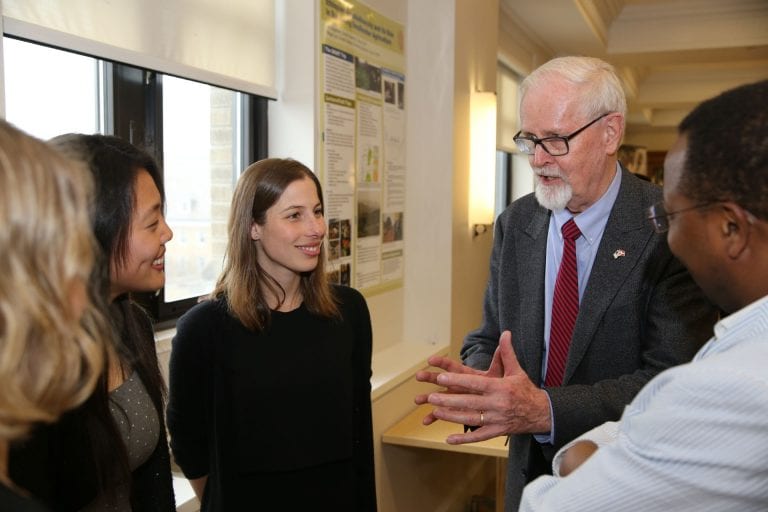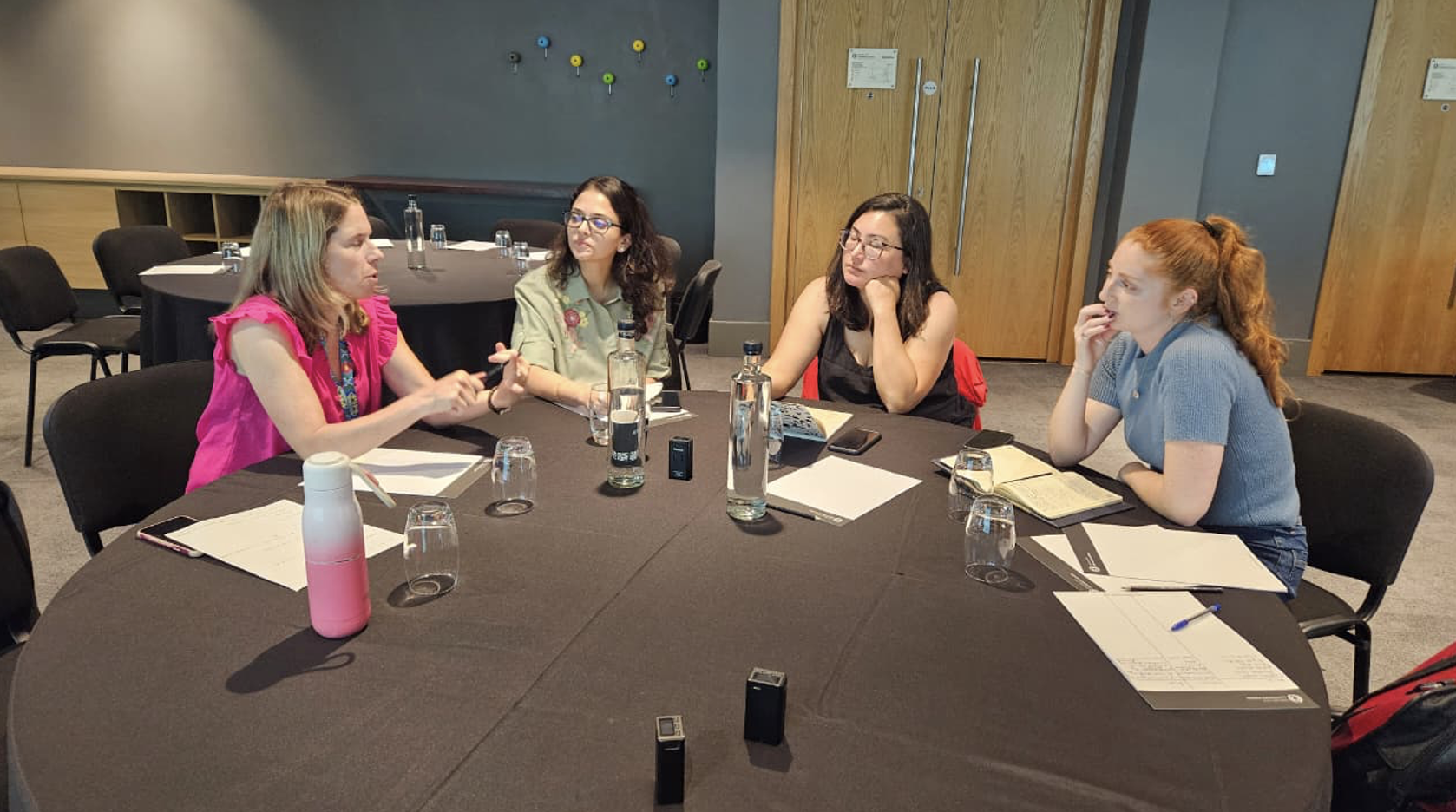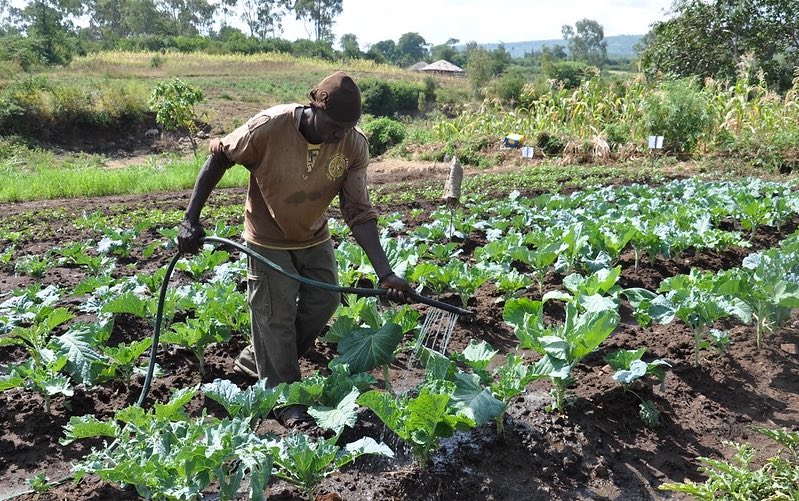As IFPRI celebrates its 50th anniversary in 2025, we are featuring a series of interviews with past leaders of the institute reflecting a half-century of progress in food systems research and policy. Per Pinstrup-Andersen, a native of Denmark and Professor Emeritus at Cornell University, was Director of IFPRI’s Food Consumption and Nutrition Division from 1980-1987 and IFPRI Director General from 1992-2003. He received the World Food Prize in 2001 for his contributions to agricultural research, food policy, and uplifting the status of the poor and starving citizens of the world, including IFPRI’s 2020 Vision Initiative.
Question: What were some of the major agrifood policy-related debates, challenges, and opportunities you witnessed during your time as IFPRI Director General?
Per Pinstrup-Andersen: At the time I returned to IFPRI as DG, policymakers in both high- and low-income countries were confronted with several important policy challenges relevant to IFPRI’s mission. Globalization was manifesting in all its forms. Governments were designing macro- and sectoral policies, including policies to guide agricultural market transformations and rural infrastructure, which affected food systems, food security, and nutrition. Governments were also grappling with how to respond to increasing concerns about natural resource management (climate change was not yet at the top of the policy agenda, but sustainable management of natural environments and price and weather volatility were). Concerns about high levels of malnutrition in sub-Saharan Africa, continued population growth, and the failure of regional food supplies to keep pace also played an important role in international and national debates, but effective action was limited.
How did IFPRI weigh in on these issues?
The above challenges guided IFPRI’s research priorities. We aimed to generate and disseminate empirical knowledge about the likely implications of policy options for poverty, food security, and nutrition, as well as the impact on natural resources.1 To do this effectively, we placed strong emphasis on interdisciplinary research and collaboration with national governments, NGOs, and international partners.

We sought to provide decision-makers with evidence-based policy options by combining macro-level policy analysis with micro-level household data. For instance, our work on consumer food subsidies, market access, and social protection programs helped inform policies in several African and South Asian countries. We also began to invest more in research on value chains, post-harvest losses, intra-household decision-making, gender issues, and the links between agriculture and health, anticipating emerging global concerns.
Moreover, we prioritized capacity strengthening in partner countries—ensuring that our research was not only accessible but also usable by local institutions. Engaging with policymakers through workshops, policy briefs, and strategic dialogues was central to our approach.
How did IFPRI evolve as an institution during those years?
IFPRI moved closer to policymakers and the intended beneficiaries of its work by strengthening its communication and dissemination capabilities. The 2020 Vision Initiative was crucial to these efforts. On the basis of the knowledge embodied in IFPRI’s more than 100 research reports, many journal articles, and other written outputs, as well as the knowledge and ongoing research of an outstanding staff, together with the creation of the Communication Division, the initiative was created to repackage and disseminate knowledge on food systems useful for policymakers and others through various outreach activities. Policy briefs, conferences, workshops, and consultations with policymakers and advisors played an important role. As a major supplier of research-based evidence about food policy, easily accessible to decision-makers, IFPRI became a major player in the international debate about food systems and related matters.
If you had to pick one major food system challenge/opportunity between now and the run-up to 2050, where policy research can play an important role, which one would you choose and why?
In my opinion, there are two challenges currently confronting policymakers that will increase in importance as we move towards 2050, for which better empirical evidence, of the kind IFPRI is eminently qualified to provide, will be needed. The first is the rejection of trade liberalization and other aspects of globalization that are beginning to take hold in many countries. Failure to base accompanying policies on solid empirical evidence could have serious negative consequences on food security, nutrition, and natural resources. The second is the increasing importance of multiple goals—pursued by global and regional organizations and by individual countries—which may compete with or complement efforts to improve food security and nutrition. Examples are adaptation to climate change, improved human and environmental health, maintaining or improving the current state of the natural environment and biodiversity, and structural changes in the agricultural sector. While relative weights given to each of these goals may be heavily influenced by political considerations, lack of solid evidence may result in failure to capture potential win-wins and miscalculation of trade-offs at the expense of the poor and malnourished.
What does IFPRI’s 50th anniversary mean to you personally?
It gives me great pleasure to have been associated with an organization that has been so very successful in improving the lives of disadvantaged people.
1. Highlights of some of this work can be found in: Per Pinstrup-Andersen, “A Journey Through Food Systems,” and Per Pinstrup-Andersen, “25 years of food policy research; reflections.”







